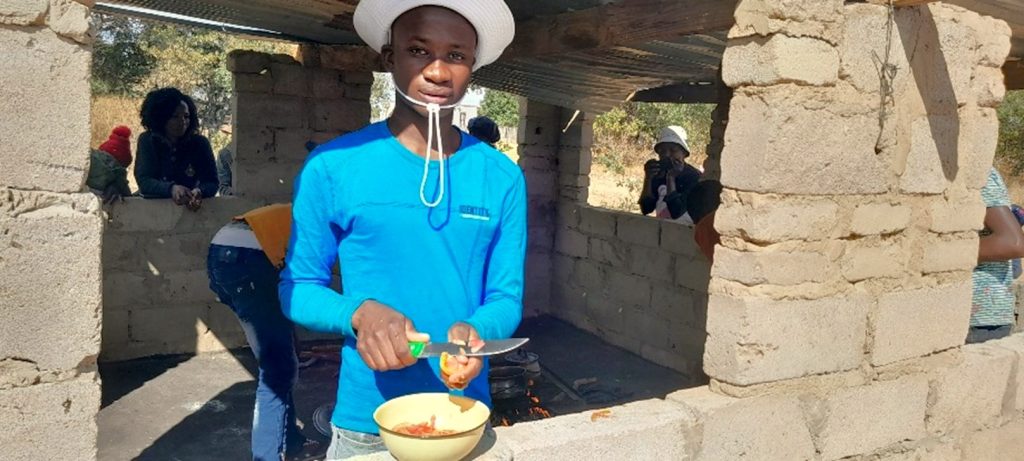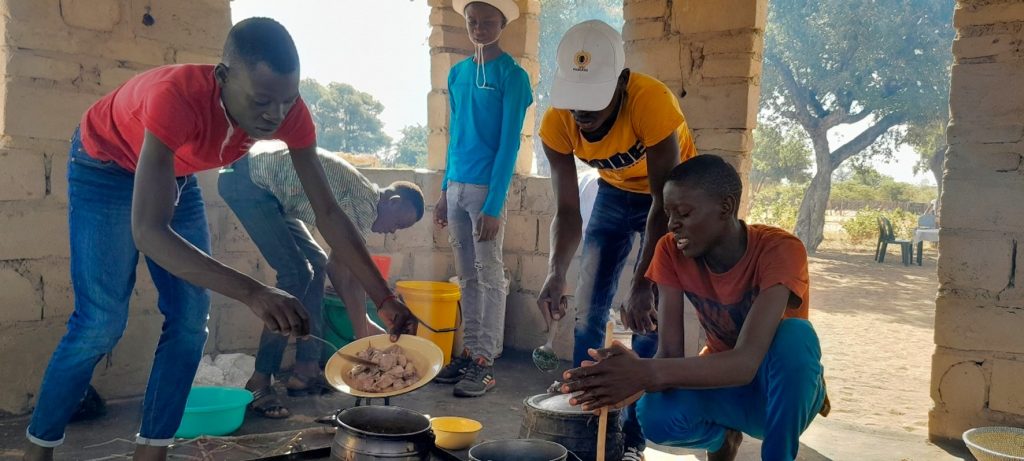For generations, the kitchen had been the undisputed domain of women. Men toiled in the fields, debated in community leadership meetings while women nurtured the home. It was the way things had always been. Until now.
At 20 years old, Shantel Ndebele, a young man from Malilawunda village in Tsholotsho is reshaping norms in the community. He loves cooking, a household chore that is usually left for women to do and is equally skilled in masculine duties. His passion for cooking has made him a reliable caregiver within his household.
“Cooking is one of the tasks I do diligently for my own benefit and to serve my family too. I cook family meals which are satisfactory for my family members. I love cooking everyday meals,” Shantel shared during a cooking demonstration conducted under the Sustainable Roots program (SRP) project in Tsholotsho.
Before the trainings Shantel highlighted that he mainly focused on taste when preparing meals for his niece and nephew. Nutrition was rarely considered.
“When I cook for my niece and nephew, I have not been considering the nutrient content of the meals but the palatability of the food. With these lessons received today (cooking a four-star diet meal), I am now able to cook a variety of combinations that will benefit my young niece and nephew who are fed mostly on porridge,” said Shantel Ndebele as the group concluded the cooking demonstration session which aims to enhance access to nutrition through sharing of recipes of balanced meals and demonstrating how they are cooked.

Above pic: Shantel cooking during cooking demonstrations in Tsholotsho
The cooking demonstration, part of SRP’s nutrition-sensitive programming, introduced participants to four-star diets and practical ways of combining locally available foods to improve household nutrition. Shantel was not alone in this transformation, his friend and neighbor Glan Sibanda, also 20 years old, expressed similar pride.
“Mina labangane bami laba sihleli sipheka emakhaya, asiqali namhla. Siyake sisale Labantwana abancane nxa abadala labodadewethu beye emhlanganweni, sisale sibanakekela lokubaphekela, njalo asilanhloni lakho”. (Me and my friends here, are not cooking for the first time here. We usually look after the young ones including cooking for them without shame).
“I know Shantel is a good cook. If any of us ask him to take temporary care of our children, we are guaranteed that he will prepare them appropriate food,” one care group member testified.
The story of Shantel and his peers illustrates how SRP’s interventions are normalizing male participation in nutrition and childcare, creating pathways toward gender equality and social inclusion in a traditionally patriarchal society. Cooking demonstrations are no longer just about food, they are a platform for reshaping gender roles, empowering youth, and improving the nutrition of children in vulnerable households.

